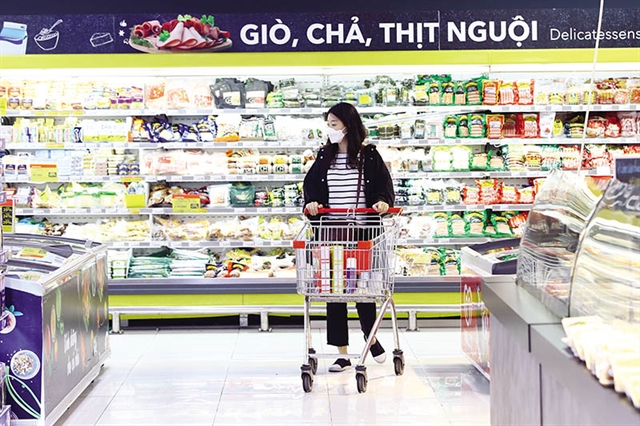 Economy
Economy


|
| Retail businesses are facing pressure to raise prices. — Photo baodautu.vn |
HCM CITY — HCM City retail businesses are working hard with suppliers and distributors to limit increases in the prices of foodstuffs and consumer goods.
Trần Lâm Hồng, deputy general director of the Saigon Union of Trade Cooperatives (Saigon Co.op), said since before the Lunar New Year – at the end of January – some suppliers of consumer products and foodstuffs had been seeking an increase in prices, but Saigon Co.op supermarket chains negotiated and found ways to keep prices unchanged.
However, with petrol prices increasing to their highest ever levels, leading to a sharp increase in production and transportation costs, manufacturers and distributors would suffer heavy losses without increasing prices, he said.
A spokesperson for The Saigon Trading Group (SATRA) said his company was negotiating with suppliers to keep prices steady, but they would fluctuate slightly, with vegetable and fruit prices increasing by 3-5 per cent.
Retailers are worried since demand has fallen sharply due to COVID-19 as people tighten spending, and any hike in prices would cause sales to plummet further.
SATRA said since the Lunar New Year sales had fallen by 5-7 per cent year-on-year.
In the face of unfavourable market conditions, Satra wants manufacturers to work together to keep prices steady.
Nguyễn Đăng Phú, deputy general director of Vissan Co Ltd, said to keep prices steady his company had stocked up on raw materials needed for the next three to five months and was negotiating with raw materials and packaging suppliers to keep prices unchanged for another two or three months though they want 5-7 per cent hikes.
Processed foods can struggle to maintain prices, but for fresh foods such as pork and seafood, it is difficult to continue to keep prices after fuel prices have climbed to record levels and are expected to increase further.
Nguyễn Trọng Trí, deputy sales director of the CP Livestock Joint Stock Company, said the pork consumption in HCM City had decreased by 30-40 per cent since many schools were still not open due to the epidemic. — VNS




